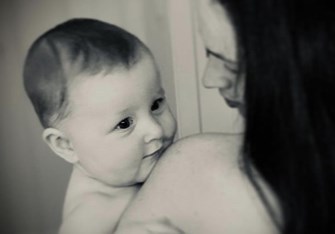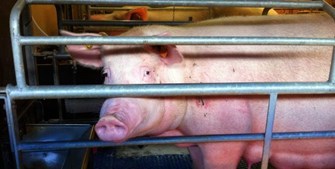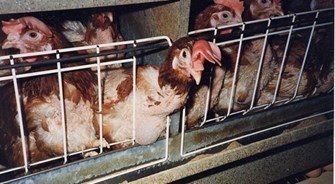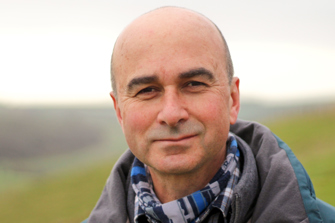Published 01/05/2020
Guest blog by Philip Lymbery

With the world gripped by the worst pandemic in a lifetime, questions are starting to be asked about how our treatment of animals is storing up health crises for the future.
Whilst Covid-19 is thought to have its roots in wildlife, future pandemics may be triggered by the way animals are factory farmed. The sad fact is that factory farming is not only extremely cruel, but also a major public health risk. Keeping animals packed into cages and confined provides the perfect breeding ground for disease.
Factory farms are a ticking timebomb for future pandemics.
Hundreds of coronaviruses are in circulation, most of them amongst animals including pigs, camels, bats and cats. Sometimes those viruses jump to humans—called a spillover event—and can cause disease. When SARS (Severe Acute Respiratory Syndrome) emerged from China in 2002, it swept across the globe—largely through air travel—causing deadly illness. More than 8,000 people fell ill and 774 died, numbers surpassed by Covid-19 within two months.

Three out of four new or emerging infectious diseases in people come from animals, including Swine flu, Avian flu, HIV, Ebola, MERS and SARS. They are known as zoonotic diseases. The Wuhan coronavirus is the latest example of an infection that has jumped from animals into humans – and when infections do this, they can be particularly deadly.
BREEDING GROUNDS FOR NEW PANDEMICS
The caged, crammed and confined conditions of factory farms provide the ideal breeding ground for new and more deadly strains of virus. Swine flu and highly pathogenic Avian flu being just two examples.
When faced with a disease crisis involving farmed animals, the industry’s reaction is to fall back on locking animals inside. After all, if they are confined indoors then they are surely protected in ‘biosecure’ units that can keep out vectors of disease transmission.
What is overlooked is that those very same ‘biosecure’ intensive farm buildings are the cause of the problem. The perfect breeding ground for disease. The hothouse where new and more dangerous strains of disease emerge, often with devastating consequences for both animals and people alike.
PLAYING RUSSIAN ROULETTE WITH OUR HEALTH

Keeping too many animals in too small a space, often in darkened, filthy and crowded conditions, provides viruses like Avian Influenza the conditions they need to spread rapidly. As they replicate at speed, mutations can occur in the virus’ DNA, causing new strains to emerge. This allows new and deadlier strains to form and spread quickly.
So, contrary to the myth levied by the industrial farming industry, keeping animals indoors simply increases the risk of disease.
The coronavirus tragedy, and Swine flu a decade earlier, have shown that treating animals as mere commodities – be they domesticated or wild – is like playing Russian Roulette with peoples’ health.
ONE HEALTH, ONE WELFARE
What I’ve come to see is that a key component of reducing the risk of devastating diseases tomorrow, is to reconnect with our humanity for animals today.
The coronavirus epidemic is not a warning, but a potent demonstration of what is going wrong, what life could become. A global lifestyle that just months ago seemed invincible, suddenly seems extremely fragile.
The way that the wellbeing of people, animals and the environment are interlinked have become increasingly clear.
Factory farming is a public health disaster waiting to happen and it is clear that future generations will be well served by its abandonment.
For animals, people and the planet, let’s end factory farming.

Philip Lymbery is the Global CEO of Compassion in World Farming.
To read more of his thoughts or learn more about his books, please use this link or follow him on Twitter.